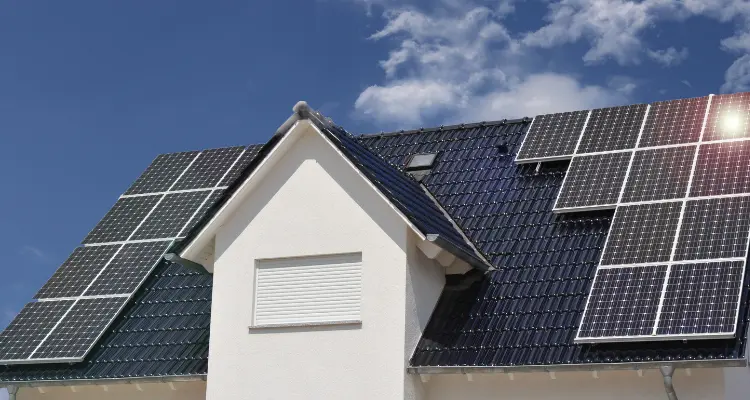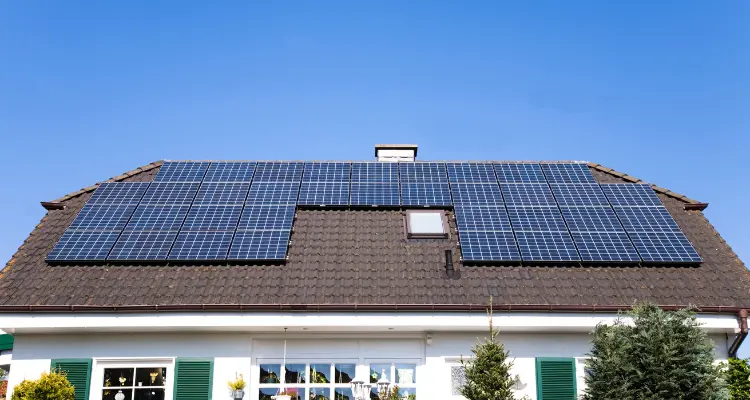Harness the Australian Sun: Your Guide to Residential Solar Panels
Australia, a land of abundant sunshine, is perfectly poised to lead the charge in residential solar energy. For homeowners seeking to slash electricity bills, reduce their carbon footprint, and boost their property value, installing residential solar panels in Australia is a smart and increasingly popular choice. But where do you begin? This comprehensive guide will illuminate everything you need to know about residential solar panels in Australia, from understanding the technology to navigating the installation process.
Why Choose Residential Solar Panels in Australia?
The benefits of embracing solar energy are numerous and compelling:
- Significant Cost Savings: Australia high electricity prices make solar panels a financially attractive investment. By generating your own power, you can dramatically reduce or even eliminate your reliance on the grid, leading to substantial savings on your energy bills.
- Environmental Sustainability: Solar energy is clean and renewable, reducing your carbon footprint and contributing to a greener future. By switching to solar, you’re actively participating in combating climate change.
- Increased Property Value: Homes with solar panels are increasingly desirable to buyers. A well-installed solar system can significantly enhance your property market value.
- Energy Independence: Solar panels provide a degree of energy independence, protecting you from fluctuating electricity prices and potential grid outages.
- Government Incentives and Rebates: Australia offers various government incentives, such as the Small-scale Technology Certificates (STCs), which can significantly reduce the upfront cost of your solar system.
Get a quick quote!
Understanding Residential Solar Panel Systems

A typical residential solar panel system comprises several key components:
- Solar Panels (Photovoltaic or PV Panels): These panels convert sunlight into direct current (DC) electricity.
- Inverter: The inverter converts DC electricity into alternating current (AC) electricity, which is compatible with your home’s electrical system.
- Mounting System: This secures the solar panels to your roof or ground.
- Electrical Wiring and Connections: These components connect the panels to the inverter and your home’s electrical panel.
- Battery Storage (Optional): Batteries store excess solar energy for use during cloudy days or at night, maximizing your self-consumption.
- Monitoring System: Many systems include monitoring software that allows you to track your energy production and consumption.
Choosing the Right Solar Panel System for Your Home
Selecting the ideal solar panels for your home requires careful consideration of several factors:
- Energy Consumption: Assess your household is energy usage to determine the appropriate system size. Review your past electricity bills to get an accurate picture.
- Roof Space and Orientation: The amount of available roof space and its orientation (north-facing is ideal in Australia) will influence the number of panels you can install.
- System Size (kW): Solar panel systems are measured in kilowatts (kW). A larger system will generate more electricity. Common residential sizes range from 3kW to 10kW.
- Panel Efficiency: Higher-efficiency panels produce more electricity per square meter, which can be advantageous if you have limited roof space.
- Inverter Quality: The inverter is a critical component, so choose a reputable brand with a good warranty.
- Budget: Solar panel systems vary in cost, so establish a budget and compare quotes from multiple installers.
- Battery Storage: Decide whether you want to include battery storage and consider the cost and benefits.
Navigating the Installation Process
Installing residential solar panels in Australia involves several steps:
- Consultation and Assessment: A qualified solar installer will assess your home suitability for solar and provide a customized quote.
- System Design and Approval: The installer will design the system and obtain any necessary permits and approvals.
- Installation: A team of qualified electricians will install the solar panels, inverter, and other components.
- Grid Connection: The installer will connect your system to the electricity grid, allowing you to export excess energy.
- Inspection and Commissioning: A licensed electrician will inspect the installation to ensure it meets safety standards.
- Monitoring and Maintenance: Regularly monitor your system’s performance and schedule periodic maintenance to ensure optimal efficiency.

Key Considerations for Australian Homeowners
- STC (Small-scale Technology Certificate) Rebates: Take advantage of the STC scheme to reduce the upfront cost of your solar system.
- Feed-in Tariffs: Explore feed-in tariffs offered by your electricity retailer, which pay you for exporting excess solar energy to the grid.
- Local Council Regulations: Check with your local council for any regulations or permits required for solar panel installation.
- Insurance: Ensure your home insurance covers your solar panel system.
- Choosing a Reputable Installer: Select a Clean Energy Council (CEC) accredited installer with a proven track record. Check online reviews and ask for references.
- Solar Panel Maintenance: While solar panels require minimal maintenance, keep them clean and clear of debris to maximize efficiency.
ADS SOLAR: Your Partner in Solar Energy
At ADS SOLAR, we understand the importance of making informed decisions about your residential solar system in Australia. Our team of experienced professionals can guide you through every step, from initial consultation to installation and ongoing support. We are committed to providing high-quality solar solutions that meet your specific needs and budget.
Conclusion
Residential solar panels offer a compelling opportunity for Australian homeowners to save money, reduce their environmental impact, and enhance their property value. By understanding the technology, navigating the installation process, and choosing a reputable installer, you can harness the abundant Australian sun and enjoy the benefits of clean, renewable energy for years to come. Investing in residential solar is not just a smart financial decision; it is a step towards a sustainable future.


